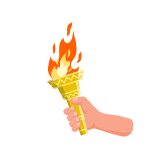Time magazine has had an interesting article about “The Upside of Being an Introvert.” The article did not speak to it, but reading it brought to mind how some childfree hypothesize that there are more introverts than extraverts who are childfree. In my experience the jury is out on that. Whether more childfree are introverts or not, I noticed things the article spoke to that the childfree have in common with introverts…
1. We’re in the minority.
Like the childfree, there are fewer introverts than extraverts. The article indicates that “by some estimates, 30% of all people fall on the introvert end of the temperament spectrum.” More people are extraverts, and as Jungian typology describes, as opposed to extraverts who draw energy from social situations, introverts find such “social interactions taxing.” Social interaction depletes their energy, and they need to be alone to replenish the output of energy from social situations.
2. We go against the norm.
“Our culture expects people to be outgoing and sociable,” says Christopher Lane, author of Shyness: How Normal Behavior Became a Sickness. “It’s the unstated norm, and against that norm introverts stand out as seemingly problematic.” With the childfree, having kids of course is the stated norm, and when they don’t conform to the norms around parenthood, they can certainly stand out in a less than positive way through the eyes of others.
3. We get pressure to be different.
The childfree are well aware of the pressures we get to change our minds and do what “normal” people do and have children, and that pressure comes in a myriad of ways. The more soft spoken, introverted style is also something that many parents don’t want in their children, “especially in a society that lionizes the bold.” It’s common for parents to press their kids to be more social and outgoing that what is comfortable for them.
However, if they want, introverts can learn and choose to be more extraverted when the situation calls for it. That’s unlike the childfree, as we can’t be a parent one day and not the next. There is what’s called the Free Trait theory that says we have three equal but different personalities:
-the inborn, biogenic, personality, the one that naturally wants to be introverted or extraverted (or the newly coined “ambivert–those who fall somewhere in between the two ends of the continuum)
-the “sociogenic” identity–the one that reflects the expectations of our culture, family and/or religion
-the ideogenic identity,which is when we choose to act differently that the biogenic in order to do what matters to us in life,or to reach our personal goals
Introverts and extraverts can have all three of these, but it’s the introverts who get more of the flack for the biogenic. And it’s the childfree who get more of the flack for a lifestyle choice that is not in line with what most people choose.
The childfree may not all be introverts, but these are some ways we find ourselves in the same boat when it comes to societal values that can and should be questioned.
Are there other things you can think of that the childfree have in common with introverts? Are you a childfree introvert? Childfree extravert? What is your experience of being childfree through this temperament lens?






I am both very introverted and “hardcore childfree” as well, and I have often thought they are at least somewhat related for me. I definitely need some time alone every day to re-charge, and the thought of having kids around all the time makes me shudder.
I’m a childfree introvert. It’s hard for me to tell where one trait ends and the other begins, so I may be getting them both confused in my mind.
Other things common to both are:
1. A big focus on individual self-fulfillment.
2. A fear of getting lost in other people’s expectations of you; the need to live your life primarily as an individual, not as a group member.
3. A high premium on peace and quiet and time to sit and think about things.
4. A high premium on individual autonomy.
5. Suspicion of people who seem to join groups really easily, or people who seem to be recruiters for something.
I’ve probably just insulted every extraverted childfree person, but I tend to associate these things with being childfree. They are the introvert’s side of me explaining why I’m childfree.
I was definitely born an introvert and still am to a large extent. As far as being aware that I’m not the norm in that respect, I’ve tended to think of myself as “getting better” as I age and gain more experience, i.e. more extroverted.
As far as the upside (as the Time article mentioned) of being introverted, I think that a similarity between the introvert and the childfree trait is that both are indicative of a high degree of introspection. We basically “look before we leap”, put a lot of thought and examination into things and into what we want out of life. Many people have kids on impulse or because it is what everyone else is doing, whether they realize it or not, and it almost always turns out to be not what they expected. We childfree or childfree introverts who observed people with kids and the world around us, did put a lot of thought into that decision. I for one realized that life without kids is awesome and the world is massively overpopulated anyway.
Lastly, needing a certain amount of quiet alone time to maintain sanity is not in keeping with having kids. I could not stand having someone screaming “MOMMY, MOMMY, MOOOOOOOMY!!!!” at me constantly.
Xena, good point about introspection. It would be an interesting study to look at level of introversion and extraversion, tendency toward introspection and decisions on kids. Another is the “cautious” factor. I believe the article speaks to this, and other theories of introversion talk about a “look before leap” tendency. Lots of childfree talk about how one factor in deciding to have no children is not knowing what you are going to get–will the child have physical issues? Emotional issues? A personality I find difficult and now have to live with for life…and more…
While I am generally an introvert, I have an extrovert streak in my volunteer work and in one of my hobbies. In the volunteer work, I often run the show which includes speaking in front of a group sometimes as large as 40 people (oncluding many children), while in the hobby I am sometimes flamboyant, not afraid to be the life of the party.
Great blog, and great comments from Lurath, Scott and Xena. I’d never really thought of the connection before until now, but it really makes sense to me. I’m an introvert, and am childfree. I enjoy my quiet/alone time, and the thought of my life being bogged down by a child just frightens me. I have dogs, which I love dearly, and there are times when they do unnerving things. I’ll state openly, “this is why I don’t want or have children”. There are times when I’ve left a public place (store, etc) where there were children, most likely crying and screaming, and I’ve thought “thank God I don’t have children”. I couldn’t imagine giving up my independence, autonomy, peace and quiet, ability to pursue life the way I choose, etc for children. I think you’ve hit on a very good correlation Laura!
I am a bit of an introvert as well. I think the older that I get the more annoyed I become about screaming crying children and loud noises. I am much more happy at home curled up with a good book or with a couple of friends in a quiet space. I do not have any desire to have kids, but feel like the outcast because I do not. I think I could say the same for being an introvert in many cases.
All of your points also apply to atheism. As a childfree atheist, I feel these pressures from all over. I’m an introvert, too, in that I like spending time with people, usually in smaller groups or one-on-one, but I need time at home to recharge.
Ang–Interesting point–a childree introverted atheist in our pro-baby, extraverted, christian society will have its challenges.I sure hope that changers over time. The childfree and the introverted seem like they will have more of a chance than christian–christian religion is so powerful…if only everyone could read and be rational enough to see the sense in books like The God Delusion by Dawkins…rather than the bible, especially taking it literally!
Really great post! I’m childfree, and I’ve always been called introverted (or “shy,” which some people use as a synonym for introverted even though it isn’t).
There’s a great book by Elaine Aron called “The Highly Sensitive Person.” By sensitive, she doesn’t mean people who get their feelings hurt easily. She means people who get overwhelmed by sensory stimulation–sounds, sights, smells–to the point where they have to withdraw (the way an introvert withdraws to recharge). I am definitely a highly sensitive person by her definition, and I always thought that had something to do with my decision to be childfree. Kids bring a lot of sensory stimulation.
The Time mag article also speaks to the Highly Sensitive Person book–Agree that people who resonate with this may be more likely to have less attraction to the stimulation kid (s) bring…think about generations past where the stigma was so great and they had kids anyway and had to deal with it!
A very interesting comparison.
Among other reasons I am childfree: I often get so deep into my own thoughts, I lose track of what is happening around me. I’m the kind of person who will put something on the stove to boil and forget about it until the smoke alarm goes off. (I use kitchen timers a lot.) This does not bode well for parenting.
(Maybe my own bias here, but) I think introverts are also better at entertaining themselves and finding ways to occupy their time. They are less likely to get bored by running out of things to do. They are more likely to enjoy their lives independently of other people.
I’m convinced some people have children precisely because they simply ran out of things to do with their time, or they “couldn’t think of anything else to do,” or “it just seemed like the next step.” Introverts do become parents, but they are much less likely to do it for these reasons.
I definitely see this connection. I can’t speak for everybody, but my introversion was certainly a factor (probably the main factor) when it really came down to my decision to live a childfree lifestyle. I become very overstimulated very easily, so the thought of not being able to come home to a guaranteed quiet, relaxing evening, but instead coming home to a screaming little unappreciative nightmare just makes my skin crawl! I could never give up my independence, freedom, and autonomy (the things in my life that mean everything to me) for something that I’m indifferent about (the idea of raising a child).
You spelt EXTROVERT wrong every goddamn time.
Jesus.
Mmmm My spell check on the blog’s back end shows that it can be spelled either way. Dictionary.com indicates the same.
I always appreciate editorial corrections, but can live without the profanity.
“Extravert” is actually the original spelling of the word. “Extrovert” is a very recent spelling, and it became acceptable because so many people got the spelling mixed up with “introvert” that the “o” spelling became common. “Extrovert” is actually an incorrect spelling which has since been forgiven.
Thanks for that clarification–was not aware of the history of the word–learn something new every day!
Not to sound trollish, but something else the two have in common, something to be aware of, is that both introverts and childfree people have a reputation for thinking that they’re better than other people. Because we’re not following the average path, we must think we’re better than the people that do. We think we know better than other people and that the unspoken rules don’t apply to us.
Some of the authors celebrating introversion and being childfree come across as a little holier-than-thou sometimes. (Not nearly as snooty as extravert and pronatalist propaganda are, of course, but the tone is there sometimes.)
I’ve read book celebrating “loners” that basically suggests that introverts are just fundamentally smarter, better adjusted, more secure, and are responsible for most of the achievements across human history. That’s a little much.
I think sometimes the holier than thou is rooted in insecurity .Those who feel good about themselves don’t have to think and /or prove they are “better” than others. It can also be a defensive posture as a result of being judged and marginalized. Both can relate to being introverted. The loner book does sound a bit much–but want to check it out.
One such book is _Party of One: A Loner Manifesto_, by Marilu something or other. (Yes, of course I have a perfect memory of its contents, why do you ask?) It’s more of a shot across the bow of extraverted society, but it’s what got me thinking that I’m a loner.
Another commonality between the childfree and the introverted is that both do a lot more work than we get credit for, because our contributions are often invisible. Both introverts and the childfree pull some of the load that our counterparts frequently fail to give us credit for.
Introverts make up a huge percentage of creative types, a huge percentage of people writing scripts for movies and TV, writing novels, etc. While extroverts are busy wasting time networking and posturing, introverts are getting the job done at their desks.
Childfree people frequently do the work of people who take time off their jobs. While parents skip work to attend children’s activities, the childfree are the ones getting the job done, without parental leave, and without the income tax breaks that parents get.